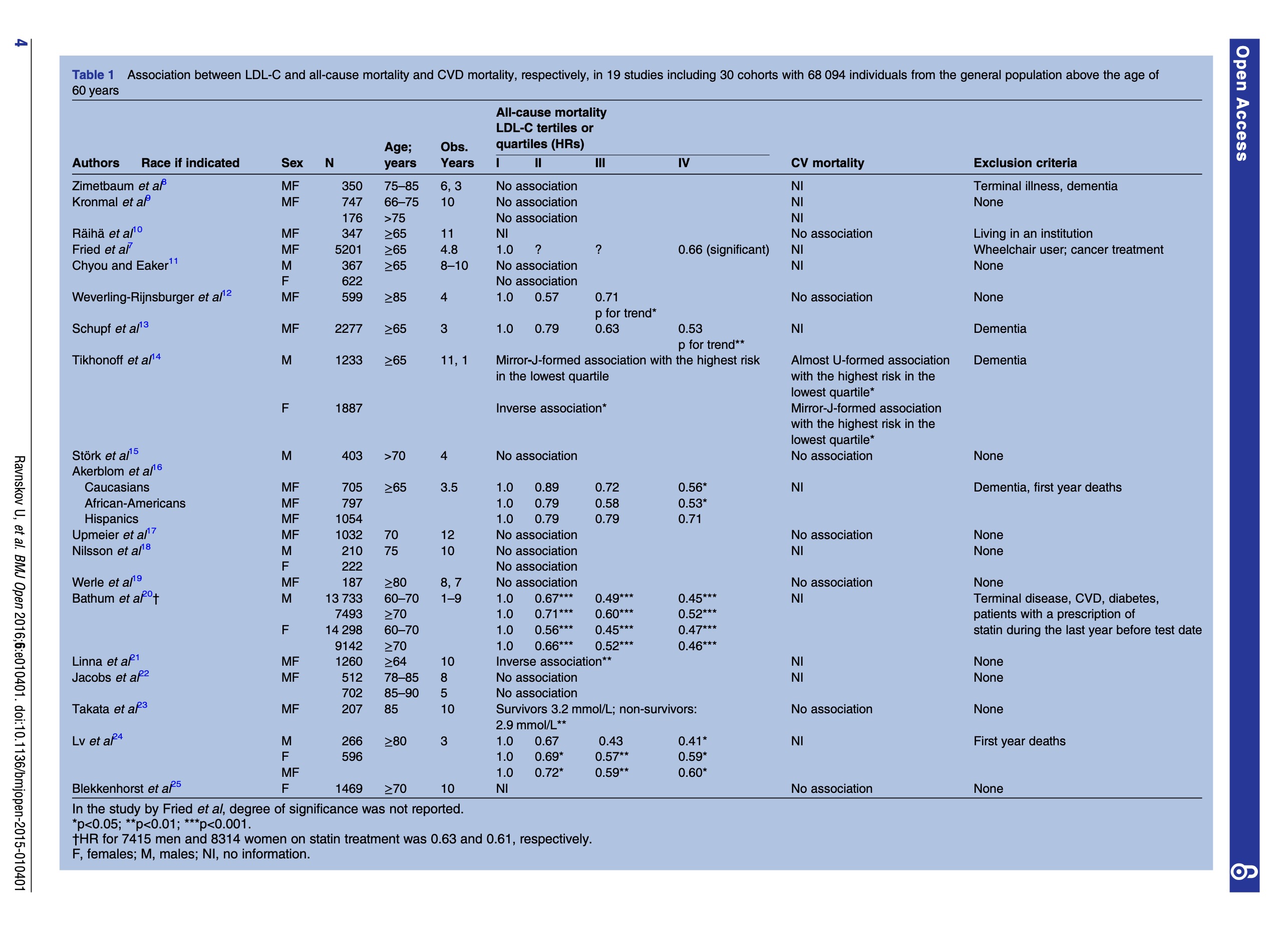this post was submitted on 22 Jan 2025
7 points (100.0% liked)
> !metabolic_health@dubvee.org
125 readers
1 users here now
Moved to !metabolic_health@dubvee.org
A place to discuss metabolic health research, papers, talks, etc.
This topic can touch upon many people's personal triggers, so please be civil.
Rules
- Be nice
- Stay on topic
- Don't farm rage
- Be respectful of other diets, choices, lifestyles!!!!
- No Blanket down voting - If you only come to this community to downvote its the wrong community for you
The banner poster in high resolution can be found here
founded 1 year ago
MODERATORS
you are viewing a single comment's thread
view the rest of the comments
view the rest of the comments

I read the paper, thanks for the link! I found it interesting.
The paper doesn't make it clear if this is a statement with respect to FH, or humans in general. One caveat that comes to mind is this statement is lumping in all types of LDL
From the introduction of the paper, they define FH as miscoded lipoproteins. I'm not sure the LDL in FH is compatible to non-miscoded LDL (normal people, not glycated, or oxidized), at least in so far as making the first statement a "fact"
From Non-coronary heart disease mortality and risk of fatal cancer in patients with treated heterozygous familial hypercholesterolaemia: a prospective registry study - Full paper is on scihub
Admittedly this study is 10 years older
table 3
Table 5 is also really interesting.
After statin availability subjects with FH appear to have less cancers then the general population. I wonder if this suggests that while very high LDL can be a CVD risk factor, could it also be a cancer risk factor? The authors suggest the cancer reduction is due to lifestyle advice given, but I think it could be suggestive of a impact of LDL. Or was the elevated LDL while being treated with statins protective?